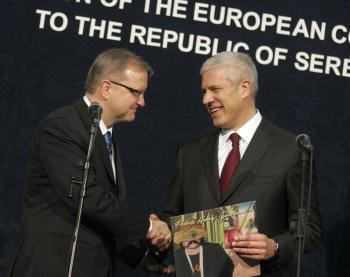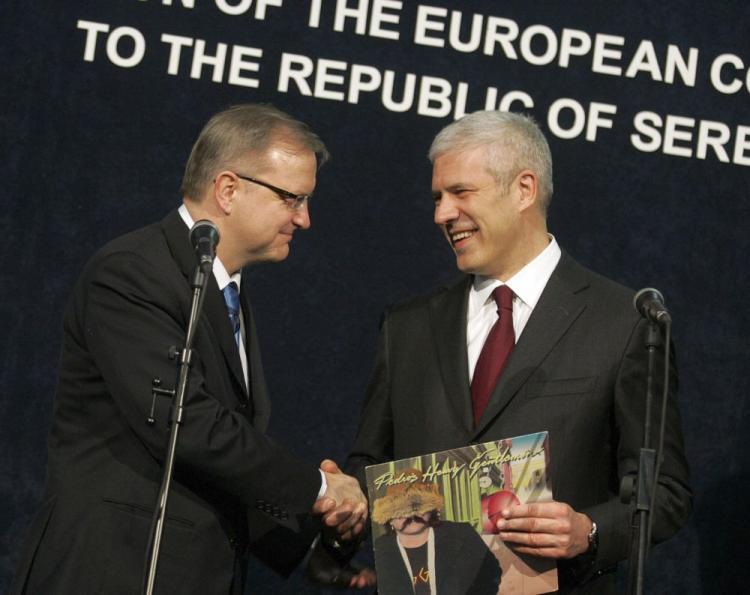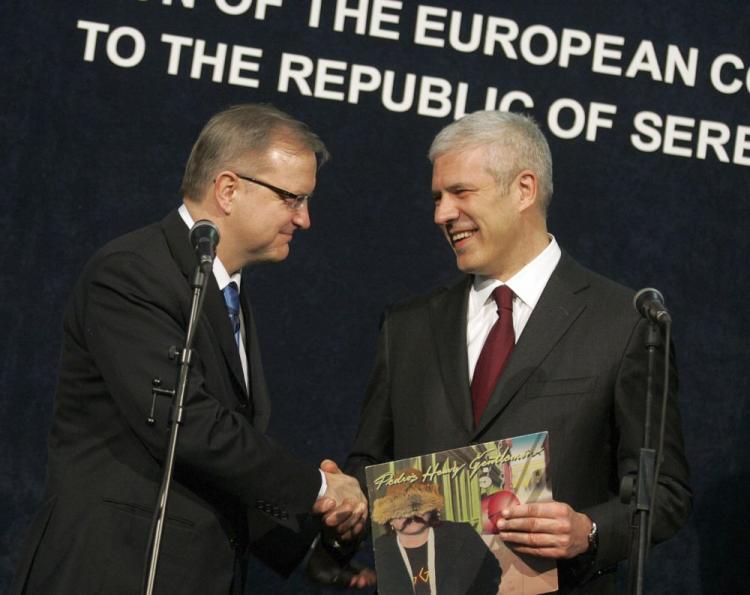The decision to allow Serbian citizens to travel to Schengen countries without a visa may be made the end of 2009, the Czech presidency’s special advisor for the EU enlargement Erhard Buseck announced.
According to Buseck, the Czech presidency of the European Union is striving to make the decision in June, but he added that it is more realistic the visa suspension to happen under the Swedish chairing in the second half of the year.
In an interview for the Serbian media portal Blic, the Austrian diplomat mentioned that currently there is no political reaction against visa suspension, but only internal discussions regarding migrants in some countries, like the Netherlands for example.
The initiative for removing the visa requirement for Serbia was taken by Italy and several other Eastern and Central European countries. The EU enlargement commissioner Olli Rehn also expressed his hope that the matter will be resolved by July 1.
Regarding the acknowledgement of Kosovo passports, Buseck declared that the topic has not been discussed. However, he mentioned that it is expected that the counties which approved the sovereignty of the former Yugoslavian republic will also approve passports of its citizens.
The Schengen Treaty was signed in 1985 by member states of the European Union. It envisages removal of border control between the countries and enacting a uniform visa system towards third-party countries.
As of 2008, the Schengen Treaty has been signed by 25 countries, some of which are not EU members (Switzerland, Iceland and Norway). However, Great Britain and Ireland, which are part of the EU, have stayed away from it. Bulgaria, Cyprus and Romania are members of Schengen but are still subject to some restrictions, being newly-admitted European states. Citizens of countries which are not members of Schengen are required to have a visa in order to enter the territory of the member-states of the Treaty.







